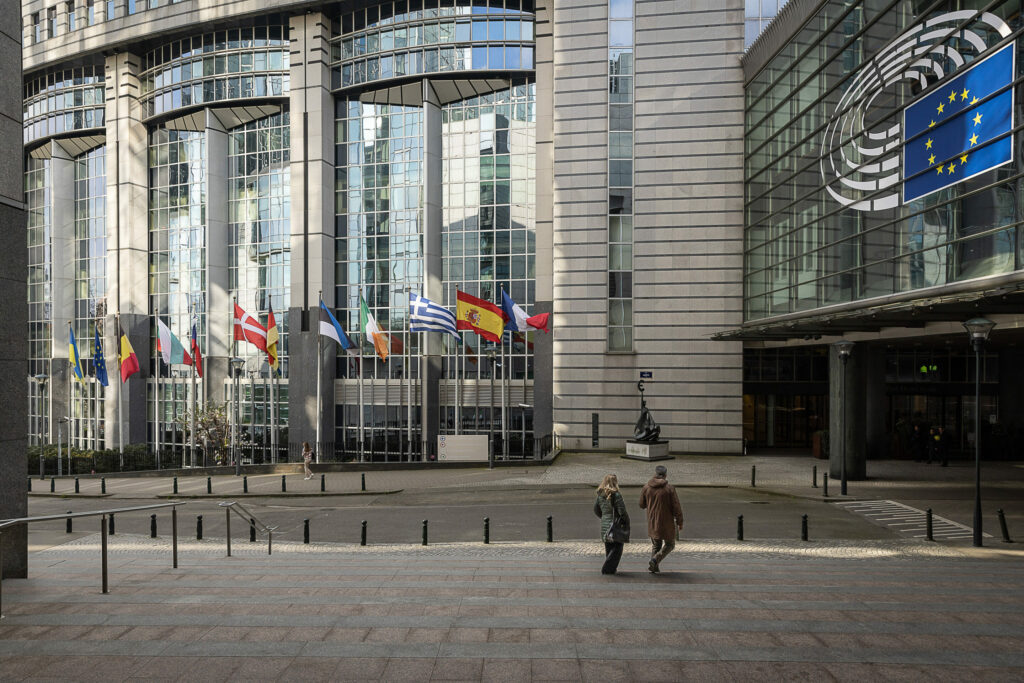Despite being home to several European institutions, Belgium performs poorly when it comes to its citizens' knowledge on the EU.
In just under five weeks, people in Belgium will head to the polls not only for the regional and federal elections but also to vote for their European representatives. However, a recent survey by consumer protection organisation Test Achats showed that Belgians are not well-informed about what the EU can do and has done in the past.
A true/false test on the institutions and decision-making of the EU found that overall, just one quarter of respondents (26%) in Belgium, Portugal, Spain and Italy were well-informed, while 20% were poorly informed. While Spain comes out on top among all the countries surveyed (29% well-informed, 17% poorly or not informed), Belgium – the capital of Europe – ended up at the bottom (22% well-informed, 25% poorly or not informed).
"This is very unfortunate because we also found that consumers do welcome the measures Europe is taking," Test Achats spokesperson Laura Clays told The Brussels Times. "But they are either unaware of the measures or unaware that they are European decisions."
Unaware of positive measures
Specifically from a consumer-oriented perspective, only one in three people in Belgium think that European policy has a positive impact on their daily lives, and 38% believe that the level of consumer protection has not changed over the past five years. "Nevertheless, Europe has taken several actions in the past legislature to boost consumer protection," Clays said.
For example, 70% of Belgians welcomed the ban on targeted advertising for minors (under the recently adopted Digital Services Act) but only half know it comes from the EU, and only 26% feel informed about it.
"The same is true for the obligation for manufacturers to repair products even after the two-year legal guarantee, and the fight against greenwashing. So we see a paradox between consumers' limited confidence in the EU and their appreciation of European policies."
However, consumers do have clear priorities for the EU. A Euroconsumers survey of more than 4,000 people found that measures to increase purchasing power are key for consumers, with a particular desire for affordable medicines (83% of Belgian consumers think the EU should focus on this) and healthy and sustainable food (76% believe this is a priority). The fight against phishing completes the top three in Belgium.
Source of distrust
Clays stressed that, while people in Belgium severely lack EU knowledge, the scores are very poor overall. "In Belgium, for example, 80% of respondents think that some members of the EU Parliament are appointed by the Member State government," she said.
For all four countries, this figure was 76%. "It is a real pity that people will soon be voting for all EU MEPs, but that so many people think that MEPs are also appointed."
She noted that the figures are worrying, as democratically, being well-informed is fundamental. "When this is lacking, that's where things often go wrong and distrust begins."
Related News
- Brussels Airlines faces EU sanctions for 'misleading' greenwashing claims
- 'Not-so-fishy fish sticks': What is cheapflation and what to pay attention to
Clays concluded that it is important for people to realise that Europe is needed to properly arm consumers in a globalised and digitised world.
"Going to vote is hugely important because the EU is more relevant than it often seems," Clays said, referring to the scrapping of roaming charges, the right to return a parcel you bought online and the right to compensation when your flight is delayed or cancelled. "Making your voice heard means giving Europe the mandate to take further measures that will empower consumers."

